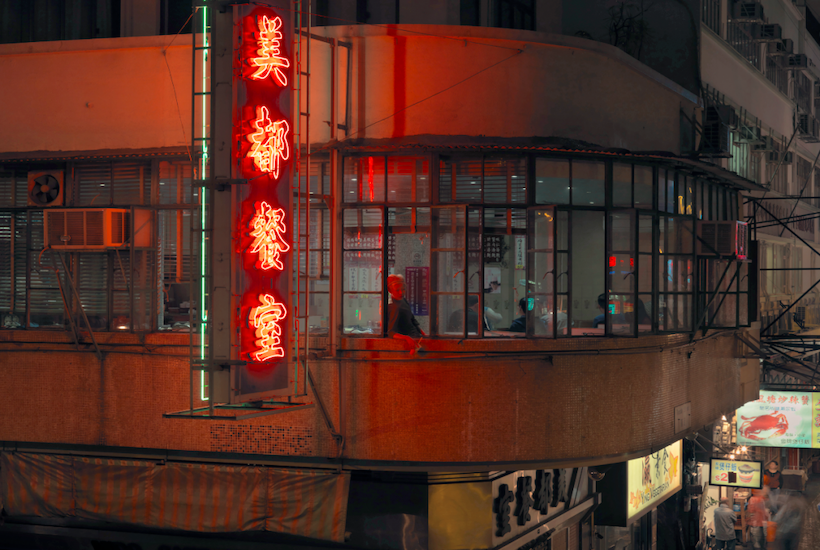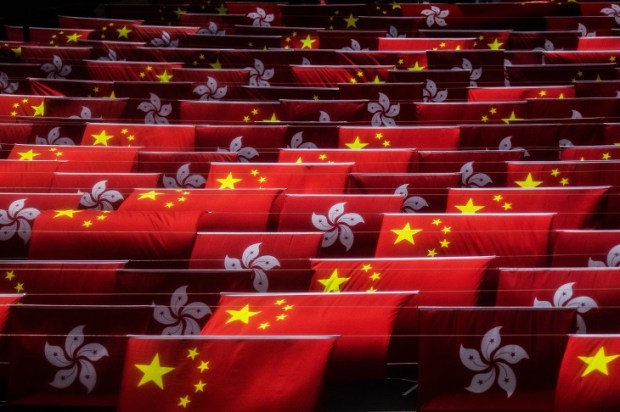I worked as a journalist, both in print and radio, in what used to be the British Crown Colony of Hong Kong three times, on longish stints and it is sad to see the current protests, young men and women but also seniors – one elderly lady waving a Union Jack – braving police batons.
Hong Kong had always been a legendary place for writers. Han Suyin, Elizabeth Chou, daughter of a Chinese father and Belgian mother, described her Hong Kong romance as ‘a many-splendoured thing’ but that description could as easily be applied to the island itself.
Hong Kong, handed over as Opium War reparations through British gunboat diplomacy was, like Singapore, slated for greatness. But whereas Singapore, that other serendipitous island colony, was geographically fortunate in its location, Hong Kong was not, and, even in the seventies, through the devastation of the Cultural revolution in China, people voiced prescient unease at the future of what one journalist termed ‘Borrowed time, borrowed place.”
I loved Hong Kong, from its tiny, toy-town Peak Tram, to the bustle and bling of Nathan Road, Kowloon, the Star ferries (the lower decks had the best views) the white sand beaches on Lantau island and shopping village Stanley. Hong Kong had history and that, for journalists and writers, is truly addictive.
The Foreign Correspondents Club, a movable institution, once located beside the venerable Hong Kong Club, until it was found its foundations were slowly sinking into the mud of the south China Sea, after which it moved to the Dairy Lane building on the island, was always full of amazing characters, diplomats, reporters, spies, sometimes all three in the same persona, all watching, talking about what was going on beyond the boundary of the New Territories.
Old China hands loved Hong Kong as did the cheerful, energetic Chinese who called Hong Kong home.
“My mother, sister and I came on the last train from Shanghai before the communists, we all lived, with my brother, who was already here, in one room in Mongkok, in Kowloon, for years, we all worked and saved, day in day out,” one owman told men.
She was speaking from her Conduit Road, harbour view apartment as her elderly mother poured green tea for us. Her story was one of many in Hong Kong, people who flourished under a ‘basic British’ government of civil society and law and order. Britain’s ‘betrayal’ of Hong Kong cut deep.
One of the Chinese-language papers featured a cartoon, also reproduced in the South Chinese morning Post daily, was that of the two evil-visaged cats, Thatcher and Deng Xiaoping, sinking their teeth into the plump fish that was labelled ‘Hong Kong’.
On my last but one night in Hong Kong, months before the handover to China, I heard children’s voices in the street below. The neighbourhood scout troop, very properly uniformed and led by a uniformed Scoutmaster, went walking past.
Britain had left many traditions in Hong Kong, not all to do with business and commerce.
The ‘autonomy’ that Hong Kong was promised is now being tested. Also tested is Australia’s support for Hong Kong against our major trading partner. We may not be in a position to do much but perhaps our government could consider the energy, brains and sheer business capabilities of Hong Kong people and what such an influx of talent could do in Australia.
Got something to add? Join the discussion and comment below.
Got something to add? Join the discussion and comment below.
Get 10 issues for just $10
Subscribe to The Spectator Australia today for the next 10 magazine issues, plus full online access, for just $10.


























Comments
Don't miss out
Join the conversation with other Spectator Australia readers. Subscribe to leave a comment.
SUBSCRIBEAlready a subscriber? Log in